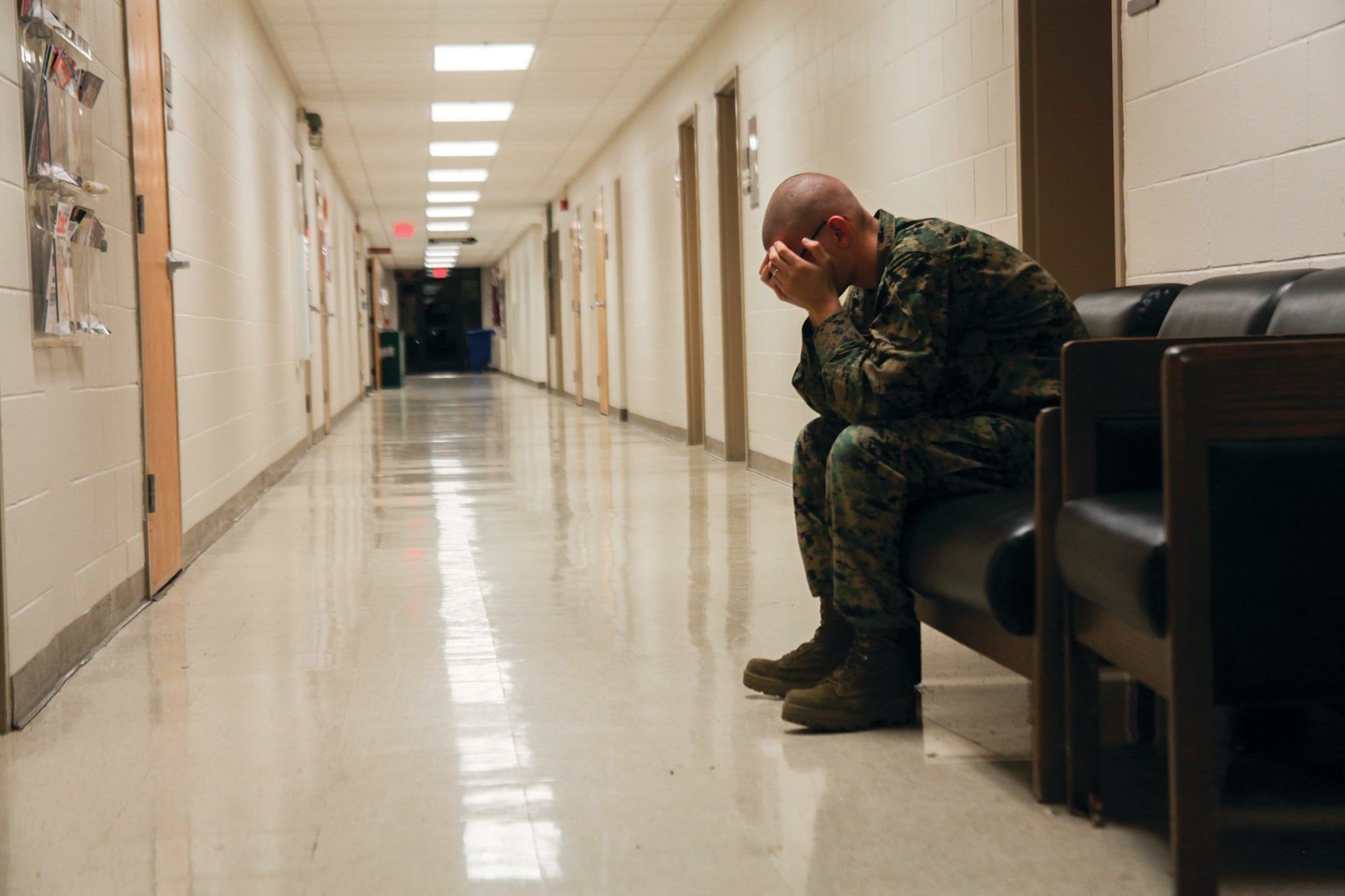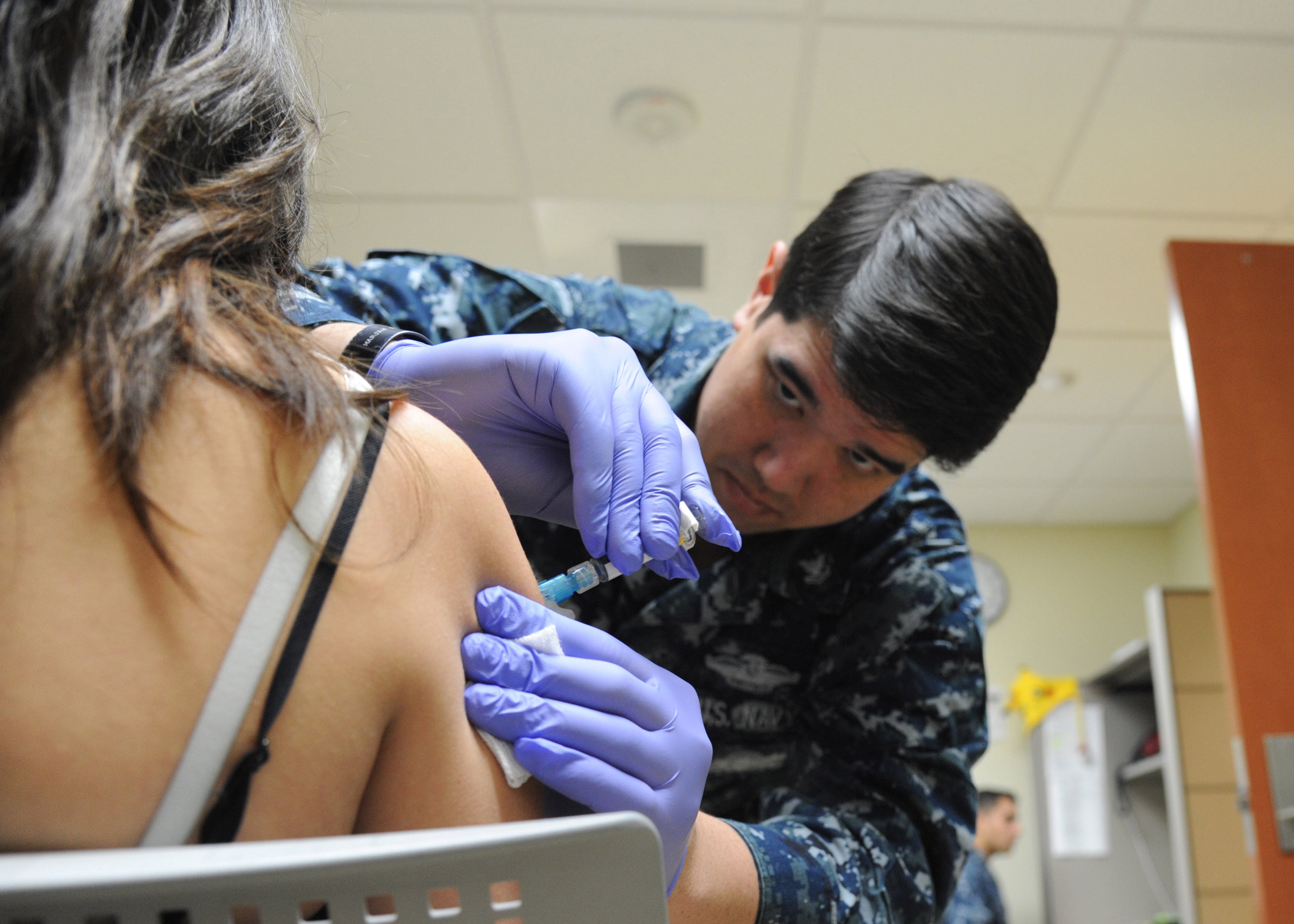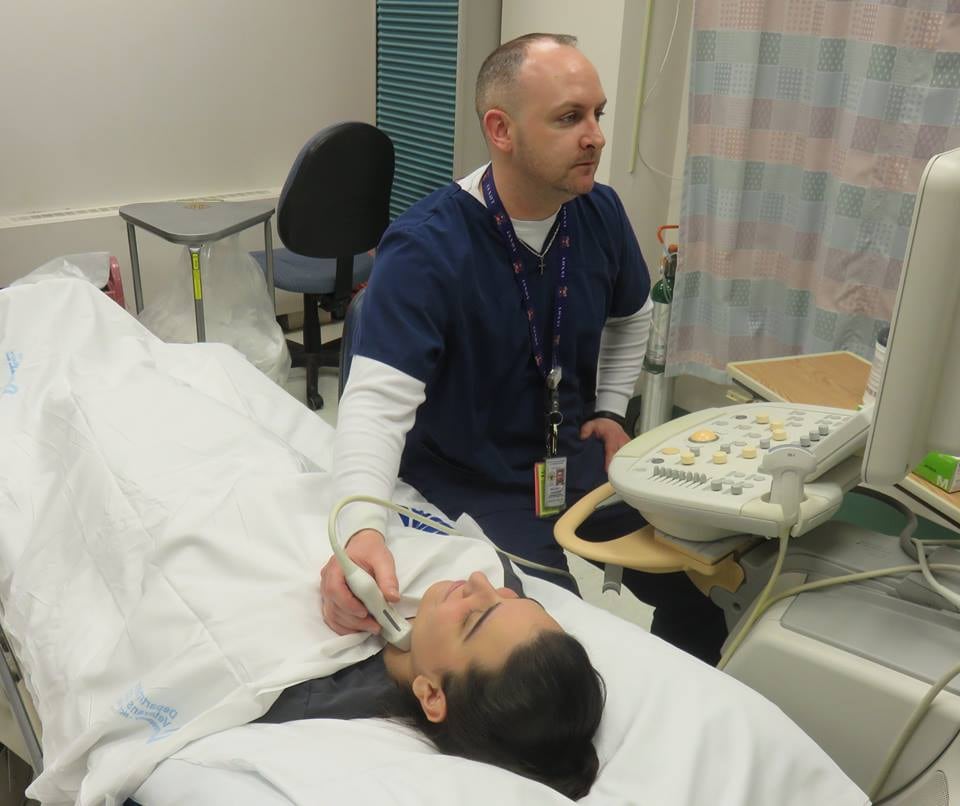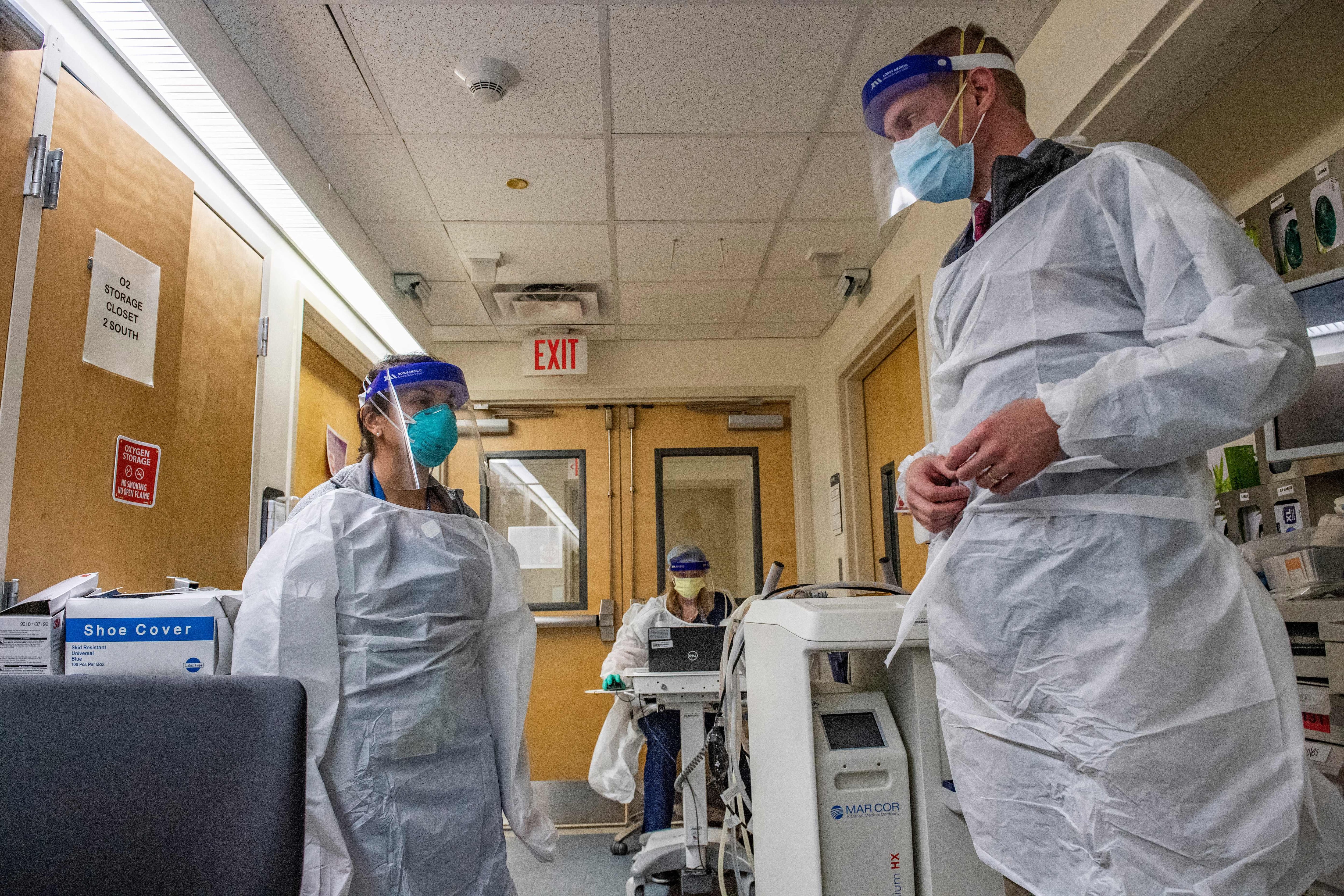When a service member attempts to take one’s life off-base, their chain of command may be the last to find out.
Local police and first responders often lack the military knowledge and on-base connections to ensure a service member receives the care they need after attempting suicide, according to David Conley, head of suicide prevention organization One More Day.
That’s why One More Day created Operation Better Together, which pairs police officers and service members in a suicide prevention course with the goal of combining resources in the fight against military and veteran suicide.
“Military personnel don’t commit suicide on bases. It’s just so rare that that happens,” Conley told Military Times. “They commit suicide out in the civilian world, so it makes sense that we get these officers as trained as we can.”
Operation Better Together uses the ASIST program — a 16-hour course that Conley calls the “Rolls Royce of suicide prevention” — to teach the basics of responding to suicide attempts and to get military and law enforcement personnel acquainted with one another.
RELATED
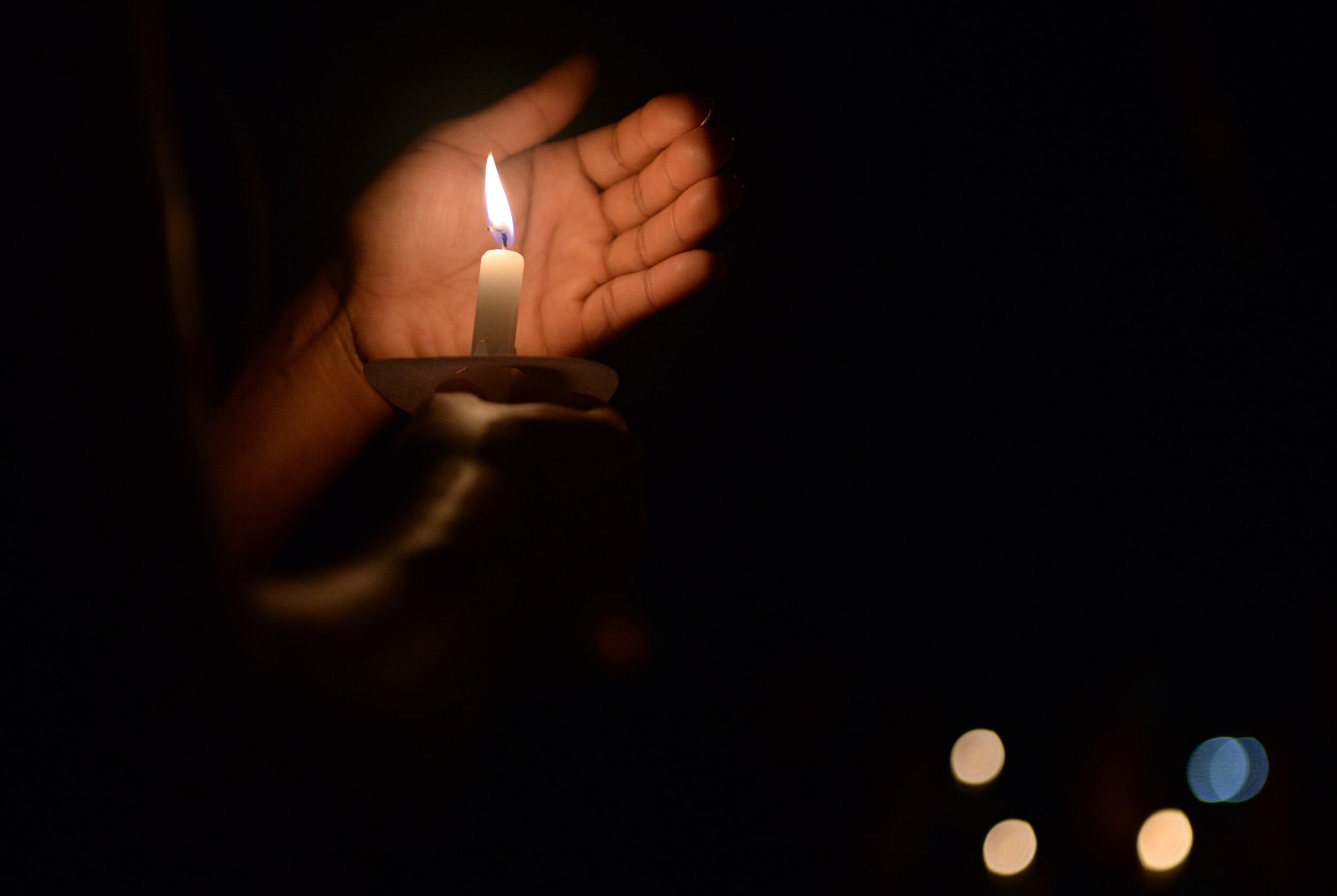
The new program has already been through one iteration, a pilot course last November with approximately 40 members of the Idaho National Guard and 10-15 police officers from local departments.
Police Lt. Ray Talbot, of the Canyon County Sherriff’s Department, was one of the officers in attendance.
As a former Marine and commander of his department’s negotiations team, Talbot is well-acquainted with the issue of military suicide. But not every officer on his department is.
“If this were a new line officer who hadn’t been through the training I’ve been through, they would be opened up to a whole new world of ideas on how to help a veteran in crisis,” said Talbot.
“It’s the same problem as we have with law enforcement, where you have a real stigma of soldiers or police officers who are in crisis asking for help,” he added. The police lieutenant stressed the importance of learning how to start a dialogue and help service members and veterans, who are used to being in control, feel empowered in a crisis situation.
Being paired up with service members and suicide prevention officials from nearby bases, Talbot said, built a basis for future communications where a service member’s wellbeing might hang in the balance.
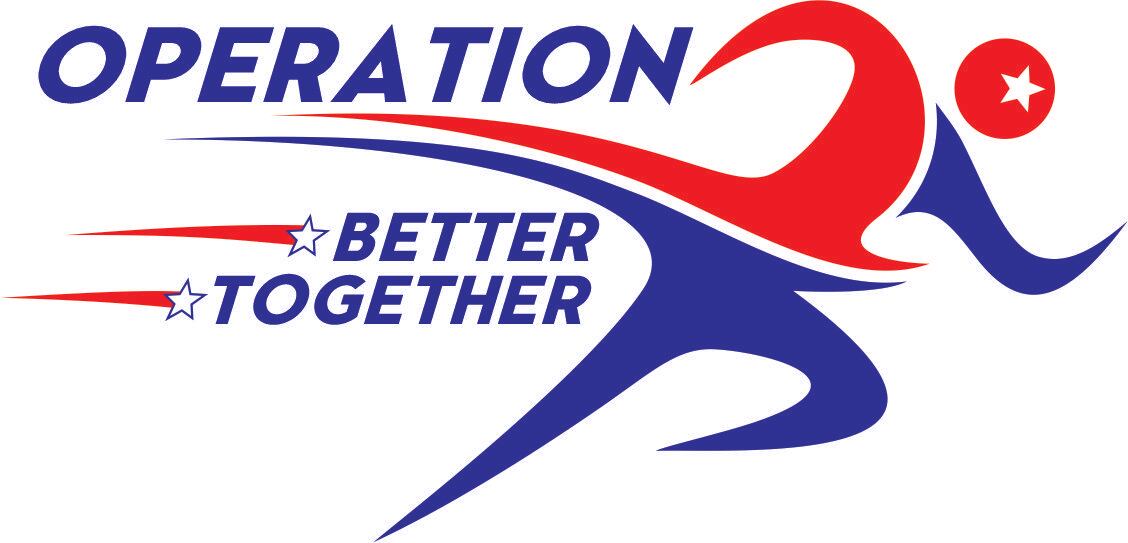
After completing only one training workshop, Conley said he’s already hearing success stories from local police who’ve been able to communicate with service members’ units when they’re in need of care.
Operation Better Together is expected to launch in Wyoming in July and, according to Conley, nine other states have confirmed their interest in the program. One More Day’s suicide prevention webinars, which take place every other month, have also attracted the attention of flag officers and service-level suicide prevention officials.
“It’s a program that helps us take the diverse resources that are out there and tries to bring them together to work on that slippery problem of the veteran or current service member in crisis and get a reach out to them,” Tim Sheppard, executive director of the Wyoming Veterans Commission, said of Operation Better Together.
Sheppard and other officials said the new program made perfect sense as they looked for a way to bring together the many suicide prevention resources already in Wyoming.
“There’s a lot of work to be done in this space. It’s been very difficult, though, to reach out across the different stovepipes and get that done,” said Maj. Gen. Greg Porter, Wyoming’s adjutant general. “I think that’s going to be pretty much the greatest measure of success: if we all know what each other are doing and what the resources are.”
Wyoming’s first ASIST training will take place from July 19-23 and will certify members of the 90th Missile Wing, the Wyoming Military Department, various veterans service organizations, and state law enforcement to teach the 16-hour ASIST module across the state.
If it’s successful in reducing suicides, Porter hopes Wyoming’s version of the program can serve as a proof of concept to other states’ military departments and the active-duty branches.
For police Col. Kebin Haller, head of the Wyoming Highway Patrol, the compact design of Operation Better Together’s offerings was a major selling point. Some of the force’s existing suicide prevention training, he said, was difficult to implement because it took up to a week to teach.
Haller expects to send 50 troopers through the program by the end of the calendar year, and eventually hopes to see the entire Wyoming Highway Patrol attend training.
“I’m looking forward to taking the training myself,” he said. “I have family members and several troopers and lieutenants in the National Guard, and just having a better overall awareness is going to be a benefit.”
As it grows Operation Better Together, One More Day continues to host conversations on its initiatives and the topic of suicide prevention. Its next webinar will take place on July 16, featuring suicide prevention speaker Kevin Hines, who attempted suicide by jumping from the Golden Gate Bridge in 2000 and lived to tell his story.
If you or a loved one is experiencing thoughts of suicide, please call the National Suicide Prevention Lifeline, 1-800-273-8255, which offers a crisis line specifically for service members and veterans.
Harm Venhuizen is an editorial intern at Military Times. He is studying political science and philosophy at Calvin University, where he's also in the Army ROTC program.
